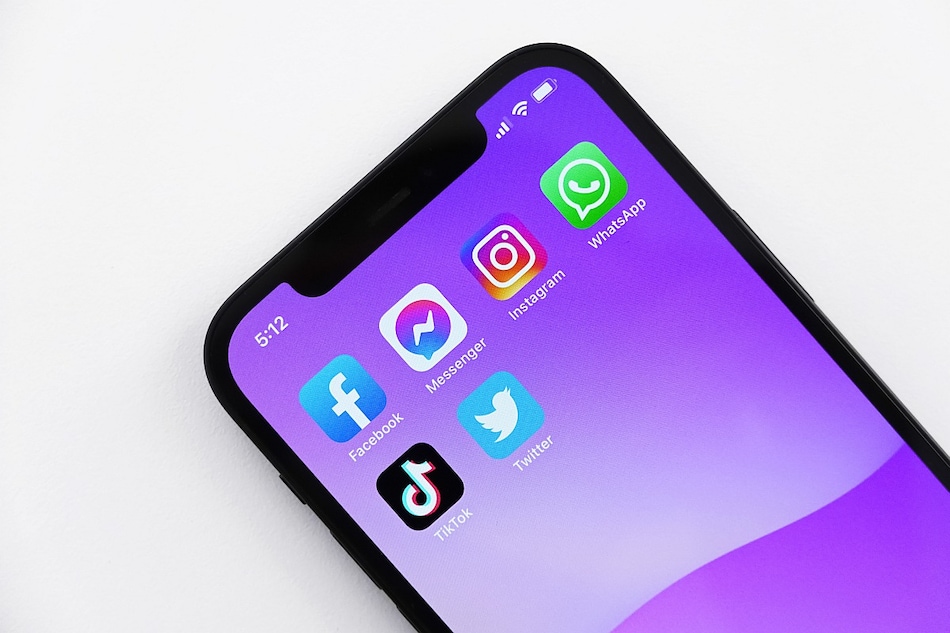- Home
- Social networking
- Social networking Features
- Social Media Use and Poor Wellbeing Feed Into Each Other in a Vicious Cycle. Here Are 3 Ways to Avoid Getting Stuck
Social Media Use and Poor Wellbeing Feed Into Each Other in a Vicious Cycle. Here Are 3 Ways to Avoid Getting Stuck
People who have poor wellbeing might be turning to social media more, perhaps as a coping mechanism – but this doesn’t seem to be helping.

Photo Credit: Unsplash
Using social media to interact with others or for entertainment linked to improved wellbeing
We often hear about the negative impacts of social media on our wellbeing, but we don't usually think of it the other way round – whereby how we feel may impact how we use social media. In a recent study, my colleagues and I investigated the relationship between social media use and wellbeing in more than 7,000 adults across four years, using survey responses from the longitudinal New Zealand Attitudes and Values Study.
We found social media use and wellbeing impact each other. Poorer wellbeing – specifically higher psychological distress and lower life satisfaction – predicted higher social media use one year later, and higher social media use predicted poorer wellbeing one year later.
A vicious cycle
Interestingly, wellbeing impacted social media use more than the other way round.
Going from having “no distress” to being distressed “some of the time”, or “some of the time” to “most of the time”, was associated with an extra 27 minutes of daily social media use one year later. These findings were the same for men and women across all age groups.
This suggests people who have poor wellbeing might be turning to social media more, perhaps as a coping mechanism – but this doesn't seem to be helping. Unfortunately, and paradoxically, turning to social media may worsen the very feelings and symptoms someone is hoping to escape.
Our study found higher social media use results in poorer wellbeing, which in turn increases social media use, exacerbating the existing negative feelings, and so on. This creates a vicious cycle in which people seem to get trapped.
If you think this might describe your relationship with social media, there are some strategies you can use to try to get out of this vicious cycle.
Reflect on how and why you use social media
Social media aren't inherently bad, but how and why we use them is really important – even more than how much time we spend on social media. For example, using social media to interact with others or for entertainment has been linked to improved wellbeing, whereas engaging in comparisons on social media can be detrimental to wellbeing.
So chat to your friends and watch funny dog videos to your heart's content, but just watch out for those comparisons.
What we look at online is important too. One experimental study found just ten minutes of exposure to “fitspiration” images (such as slim/toned people posing in exercise clothing or engaging in fitness) led to significantly poorer mood and body image in women than exposure to travel images.
And mindless scrolling can also be harmful. Research suggests this passive use of social media is more damaging to wellbeing than active use (such as talking or interacting with friends).
So be mindful about how and why you use social media, and how it makes you feel! If most of your use falls under the “harmful” category, that's a sign to change or cut down your use, or even take a break. One 2015 experiment with more than 1,000 participants found taking a break from Facebook for just one week increased life satisfaction.
Don't let social media displace other activities
Life is all about balance, so make sure you're still doing important activities away from your phone that support your wellbeing. Research suggests time spent outdoors, on hobbies or crafts, and engaging in physical activity can help improve your wellbeing.
So put your phone down and organise a picnic with friends, join a new class, or find an enjoyable way to move your body.
Address your poor wellbeing
According to our findings, it may be useful to think of your own habitual social media use as a symptom of how you're feeling. If your use suggests you aren't in a good place, perhaps you need to identify and address what's getting you down.
The first, very crucial step is getting help. A great place to start is talking to a health professional such as your general practitioner or a therapist. You can also reach out to organisations like Beyond Blue and Headspace for evidence-based support.
For the latest tech news and reviews, follow Gadgets 360 on X, Facebook, WhatsApp, Threads and Google News. For the latest videos on gadgets and tech, subscribe to our YouTube channel. If you want to know everything about top influencers, follow our in-house Who'sThat360 on Instagram and YouTube.
Related Stories
- Samsung Galaxy Unpacked 2025
- ChatGPT
- Redmi Note 14 Pro+
- iPhone 16
- Apple Vision Pro
- Oneplus 12
- OnePlus Nord CE 3 Lite 5G
- iPhone 13
- Xiaomi 14 Pro
- Oppo Find N3
- Tecno Spark Go (2023)
- Realme V30
- Best Phones Under 25000
- Samsung Galaxy S24 Series
- Cryptocurrency
- iQoo 12
- Samsung Galaxy S24 Ultra
- Giottus
- Samsung Galaxy Z Flip 5
- Apple 'Scary Fast'
- Housefull 5
- GoPro Hero 12 Black Review
- Invincible Season 2
- JioGlass
- HD Ready TV
- Laptop Under 50000
- Smartwatch Under 10000
- Latest Mobile Phones
- Compare Phones
- Red Magic 11 Pro
- Red Magic 11 Pro+
- Huawei Nova Flip S
- Huawei Nova 14 Vitality Edition
- OPPO Find X9
- OPPO Find X9 Pro
- Honor Magic 8 Pro
- Honor Magic 8
- MacBook Pro 14-inch (M5, 2025)
- Asus Vivobook S16 (S3607QA)
- OPPO Pad 5
- Apple iPad Pro 13-inch (2025) Wi-Fi + Cellular
- OPPO Watch S
- Honor Watch 5 Pro
- Xiaomi Xiaomi TV S Pro Mini LED 55 2026
- Xiaomi TV S Pro Mini LED 65 2026
- Asus ROG Ally
- Nintendo Switch Lite
- Haier 1.6 Ton 5 Star Inverter Split AC (HSU19G-MZAID5BN-INV)
- Haier 1.6 Ton 5 Star Inverter Split AC (HSU19G-MZAIM5BN-INV)

















